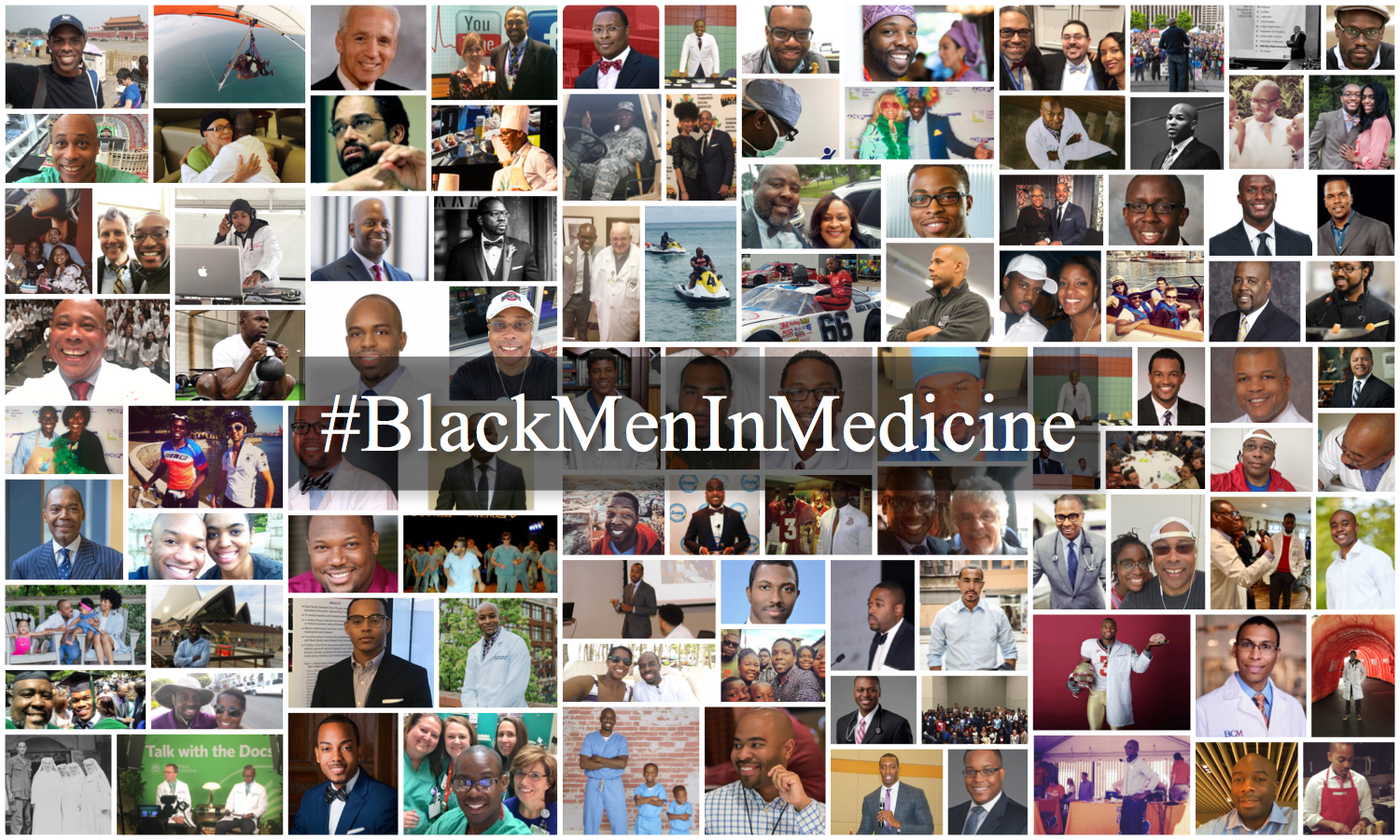There were fewer Black men enrolling in medical school in 2014 than in 1978.
In a world where the first Black president of the United States was elected nearly a decade ago with many declaring it to be a new day of progress for Blacks in America, statistics such as this one come as a surprise. Fifteen years ago only 677,000 Blacks held an advanced degree. Today that number is 1.6 million. For unclear reasons, these successes have not translated into increased representation of Black men in medicine.
The 2015 AAMC report Altering the Course: Black Males in Medicine provided interviews of premedical students, physicians, and researchers that highlighted reasons for the decline in Black men enrolled in medical school, emphasized research and data to help explain trends, and sought ways to encourage more black men to consider medicine as a career. They identified recurring themes such as unequal educational opportunities from kindergarten-12th grade, absent role models or mentors in medicine, negative societal bias and perceptions of black men, and the increasing financial burden from the cost of a medical education.
We are familiar with the AAMC report, and many of us have been working to address the issues presented.While at Duke University, Dale Okorodudu, MD created the video series “Black Men in White Coats” with the goal of inspiring and encouraging black men to pursue careers in medicine. He wrote blogs, such as Where The Brothers At?-Mentoring and Black Men Doctors, which called for strong mentorship to young men who could and would pursue medicine if they were exposed to “men of seniority…similar to our black men…who could capture their attention and gain their respect.” In September 2015 Damon Tweedy, MD released his book, Black Man In A White Coat, to document the challenges he faced and to inspire other black men to follow in his footsteps. In his New York Times Op-Ed article “The Case For Black Doctors,” he recognized that further under-representation of this group in medical school could lead to “even worse health outcomes for a population that is already the least healthy.”
So, when medical student, Vince Morgan, tweeted the statistic from the AAMC report November 16, 2017 many of the black male physicians on Twitter felt a sense of camaraderie and solidarity with Vince’s tweet. While our experiences in medical school spanned decades, we were united by our common experience of representing less than 2% of our individual graduating medical school classes. Unfortunately, for the majority of medical schools, these numbers remain unchanged today.
A robust conversation ensued on Twitter among those of us who recognized the problem and wished to do something to rectify the disparity and to find ways to lead by example and support those coming behind us. Perhaps inspired by the strength and resiliency we have seen demonstrated by women physicians and hashtag movements such as #ILookLikeASurgeon and #ThisIsWhatADoctorLooksLike and an immediate recommendation by Quinn Capers, IV, MD, we decided a social media movement and community of our own was in order. In fact, the surgeons among us had previously brainstormed with Heather Logghe, MD, founder of #ILookLikeASurgeon as to how to leverage social media and create a similar, simple to read, but influential hashtag. The goal of the hashtag would be to promote and encourage more young black men to pursue careers in medicine, especially to those who may not recognize medicine as a viable career option perhaps because they have never actually seen or met a black male physician.
Similar to #WomenInMedicine, Darrell Gray, II, MD, MPH suggested #BlackMenInMedicine. Dr. Dale Okorodudu mentioned the Facebook group with a membership of nearly 500 strong with the same name started by Dr. Henry Lewis, III. While we shared the same goal of advising, mentoring, and motivating black men to enter the medical profession with that Facebook group, our goal of re-purposing #BlackMenInMedicine is to encourage universal use of the hashtag across Twitterverse and other social media. Our hope is that the hashtag will be used not only by Black physicians and the allies similarly passionate about increasing diversity in medicine, but by anyone wanting to recognize the many accomplishments of Black men in medicine.
With use of #BlackMenInMedicine, we aim to:
- Provide visible role models of black men in medicine, both as they practice medicine, and perhaps more importantly, how they spend their time outside of the clinic or hospital
- Highlight achievements of black male physicians, as well as black men in medical school, and those aspiring to the premed track
- Inspire black men to pursue careers in medicine and become motivated to care for communities of color
- Highlight outstanding achievements of black doctors in both community and academic medicine and practice
- Provide support, mentoring and sponsorship of black women in medicine who face additional challenges at the intersection of gender and race
- We pledge to speak up when we witness gender-biased microaggressions, blatant sexual harassment, or harmful bias and discrimination toward other minority groups
- Together, we aim to ensure a safe and inclusive educational, training, and working environment for all of us
Blog post written by Cedrek McFadden, MD and Heather Logghe, MD
Supported and developed by:
Cedric Bright, MD (@CedricMBrightMD)
Quinn Capers, IV, MD (@DrQuinnCapers4)
Dale Okorodudu, MD (@DoctorDaleMD)
Darrell Gray, II, MD, MPH (@DMGrayMD)
Joshua J. Joseph, MD (@joshuajosephmd)
Alden Landry MD MPH (@AMLandryMD)
Heather Logghe, MD (@LoggheMD)
Cedrek McFadden, MD (@cedrekmd)
James Moore, III, M.A.Ed, Ph.D (@DrJLMooreIII)
Brian H. Williams, MD (@BHWilliamsMD)
Also Supported By: Tour for Diversity in Medicine (@tour4diversity)

